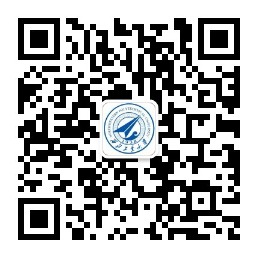On December 31, 2020, QMES held a seminar named "World Coffee" in the Room 406 of East Teaching Building A. The activity invited students’ representatives from QMES, School of Materials Science and Engineering, School of Chemistry and Chemical Engineering, School of Physical Science and Technology, and School of Foreign Studies to participate in the seminar. Dean Jie Kong, Associate Dean Xiaoli Fan, Yin Cheng, and Director of the Teaching Office Ye Yang attended this event.
Can Li, an undergraduate of Class 2019 of QMES,hosted this seminar. Firstly, he introduced the seminar’s theme—"Explore the philosophical significance, Cultivate intellectual thinking,"and presented the discussion mode, solving problems and finding the right ways with dialogues, creating a relaxed and casual place for students to discuss their thoughts and sublimate them. There are two themes of the "World Coffee" seminar, a discussion section and a display section. After each round of the display section, the participants would change their seats randomly. Then they would discuss with the new team members on the following topic and share the result of the discussion.
During the discussion section, Dong Yan from the School of Chemistry and Chemical Engineering explained his views on engineering ethics and what principles need to be adopted to implement them. He pointed out engineering ethics plays a significant role in engineering practice. It should be people-oriented, safe, and environmental-friendly if we implement engineering ethics successfully. He emphasized that students should do more things in the limited time to improve themselves constantly.
Zhi Zheng from QMES started with the contradictions brought about by Covid-19, for example, online teaching, and explained the law of unity and opposites. He emphasized that we should be calm down and solve problems with our subjective initiative when we face difficulties to turn disadvantages into advantages. And then, Du Jinbo analyzed the development history of nanotechnology from the perspective of materialism by combining philosophical elements. He also believed that there is a great benefit to studying professional knowledge to apply dialectics of materialism in learning.
In this session, students felt the differences in thinking modes and learning methods via discussing and exchanging, deepening the understanding of the "philosophical elements" in engineering ethics and professional learning, and cultivating teamwork in group communication. In addition, faculty members also went into each seminar group and discussed issues with them, and representatives of each group expressed their views, and the participants all gained differently.
After the end of the seminar, Dean Kong summarized the activity and discussed problems with the students. At first, he expressed his views on engineering ethics and "philosophical elements" in professional learning, using the example of the Three Gorges Dam Project to clarify the importance of engineering ethics. Secondly, he underlined that college students should apply empathy in the study and daily life to communicate. Finally, he congratulated the successful convening of this "World Coffee" seminar.
This seminar is the third "World Coffee" seminar held by QMES, which has set up a platform for students to learn and discuss. Students from different colleges and grades can communicate and learn from each other, which helps gather consensus and form synergy. The seminar provided new ideas and solutions for "Ideological and PoliticalEducation" under Sino-foreign cooperation. It was also an important initiative for the QMES to implement the fundamental task of establishing moral education, improving the quality of talent training, and comprehensively promoting the discussion on talent training of NPU.

